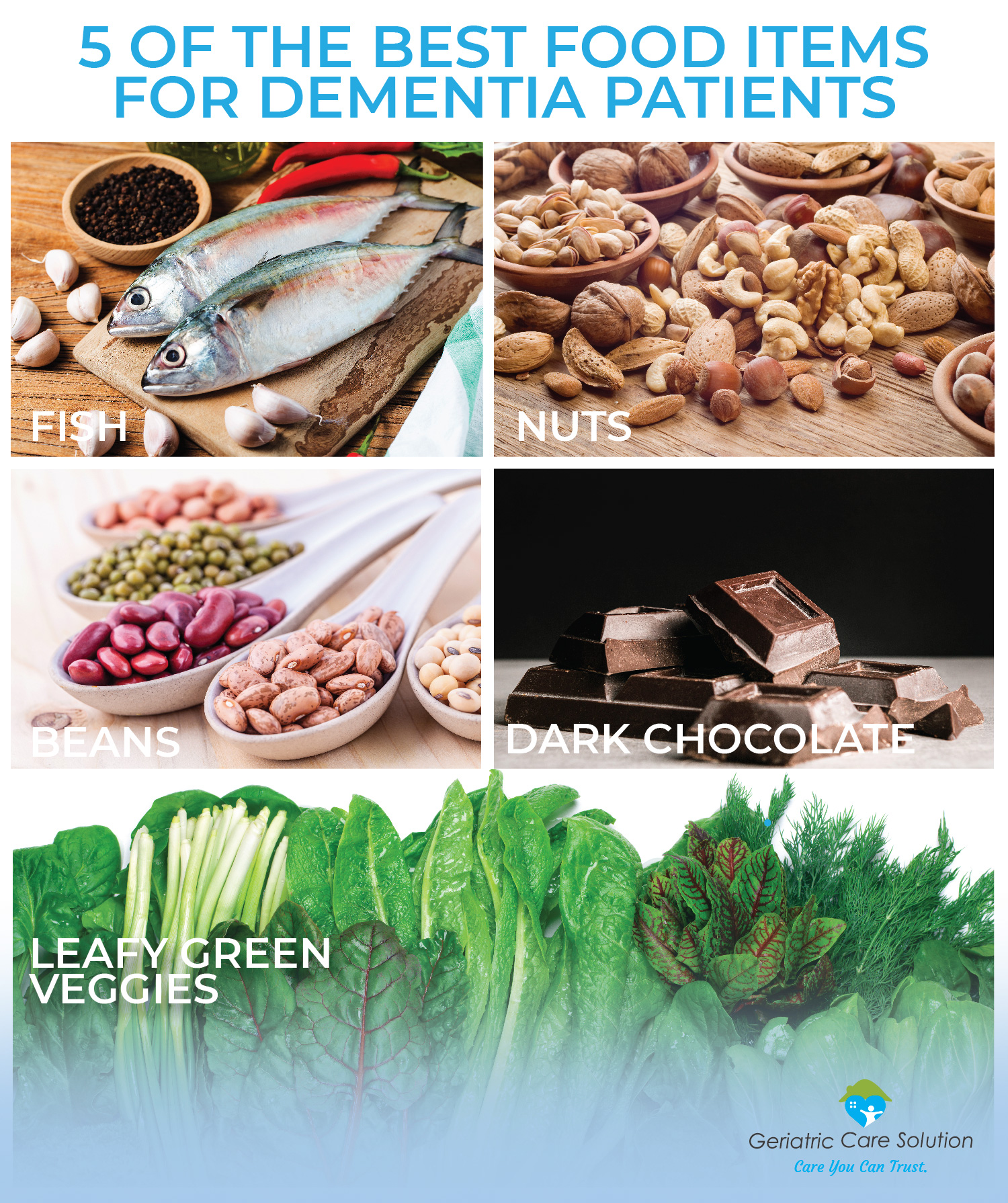
5 of the best food items for Dementia patients
5 of the best food items for Dementia patients
A healthy and nutritious diet is an integral part of an effective plan of care for patients with dementia. It is important for caregivers to understand the most appropriate techniques and procedures to help elders dealing with dementia get the necessary nourishment on a regular basis. In this way, dementia patients can keep unnecessary weight gain or loss at bay.
Watch the video below to find out more:

Elders with dementia may forget to eat from time to time because of several factors. It may be due to a side effect from a current medication, a continuing decline of cognitive functions, or depression. However, as the experts tasked to keep dementia patients’ health in check, caregivers must know which food items can best help the cause of our elders.
Here are five (5) of the best food items most recommended by experts to be part of every dementia patient’s diet.
FISH
Experts recommend offering dementia patients fish at least once a week. The high levels of omega-3 fatty acids in fish—specifically eicosapentaenoic (EPA) and docosahexaenoic (DHA)—help keep long-term dementia at bay. According to health experts from the University of Pittsburgh, these nutrients found in fish “help increase blood flow to the brain and can also act as an antioxidant that helps reduce inflammation.” In essence, eating fish helps keep dementia patients’ brains in great shape.
LEAFY GREEN VEGGIES
There’s a reason why Popeye—one of the world’s most iconic cartoon characters—gets a huge boost in energy from eating his leafy greens all the time. Green leafy vegetables, like spinach, cabbage, lettuce, or kale, contain brain-boosting antioxidants and vitamin K that offer a sturdy defense against further cognitive decline for dementia patients. A study conducted by experts from the Rush University in Chicago and the Tufts Human Nutrition Research Center in Boston revealed that “the rate of cognitive decline among those who consumed the most (green leafy vegetables) to those who consumed the least was equivalent to being 11 years younger cognitively.” How amazing is that, right?
BEANS
Eating beans at least three times a week can help fend off cognitive decline for dementia patients. Beans are renowned for being rich in fiber and protein. They are also excellent sources of omega-3 fatty acids and the B-vitamin choline. Combined, these nutrients help promote healthy brain activity and regulate positive neurotransmitters that work to keep a good cognitive function.
NUTS
Here’s a great reason to go nuts on, well, everything about nuts. In a study published at The Journal of Nutrition, Health, and Aging, eating nuts equivalent to about two teaspoons a day can help improve brain activity by at least 60%. Among the encouraging results noted by the team of experts who conducted research on individuals aged 55 and above include “improved thinking, reasoning, and a sharper memory.”
DARK CHOCOLATE
We all know that aside from the positive feeling people get from munching on this amazing creation, it is also hailed as a super healthy food that only does wonders, particularly for those with dementia. Cocoa, the main ingredient for dark chocolate, is rich in flavonols, a kind of antioxidant that helps maintain healthy blood flow to the brain. This, in turn, help improve attention, mental processing speed, memory, and verbal capacity among elders with dementia.
Just reuser to offer this in moderation, as eating dark chocolates in excessive amounts may also lead to other problems in the long-term.
These are actually just a few of the things that we recommend to our Care Partners at GCS to complement all the other items included in the plan of care for dementia patients. With a healthy diet, proper medication, constant companionship, and close assistance and monitoring, dementia patients can truly enjoy dignified lives more and more.
Read next:
Best Rewarding Activities for Elders Diagnosed with Dementia & Alzheimer’s

